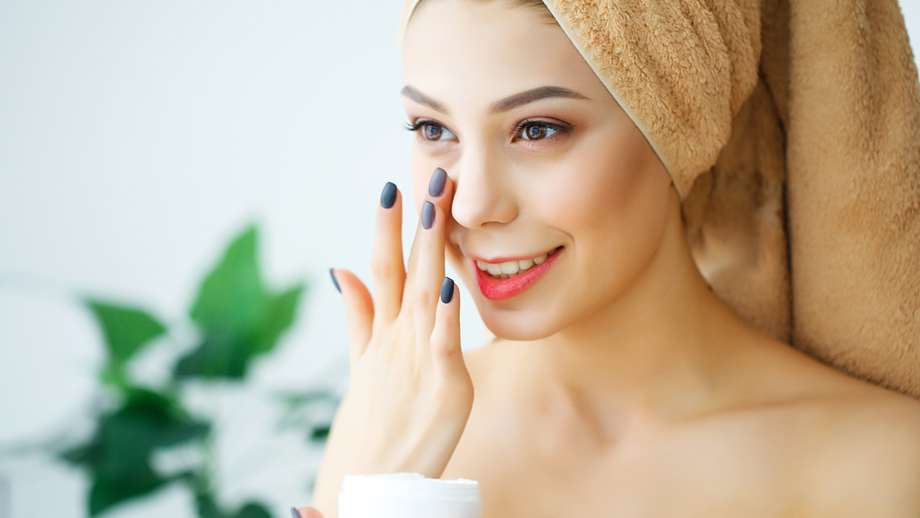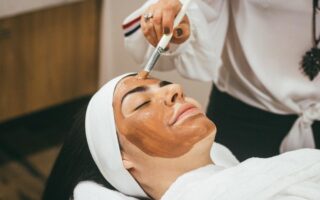The nose is one area that tends to get drier than anywhere else on the body—save for the elbows, knuckles and corners of the mouth. It’s fairly common to experience dry skin across the top of your nose and around your nostrils. This can often result in flakiness in the skin too.
Table of Contents
Common Reasons For Dry Skin Around The Nose
The skin on and around the nose is quite sensitive, which is why it’s so common for it to become red, itchy and dry with flakes. For some people, this dryness is difficult to keep under control. The reasons for dry skin around the nose can vary depending on your body, the environment and a host of other factors. These are the most common causes:
Your Skin Type
Unfortunately, skin type is the leading cause of dry skin around the nose and in other areas, and there isn’t much you can do to change that. People who have a tendency towards dry skin in general, as well as those with combination skin, will most likely be the first to get red, flaky skin on their noses. Those with an oily T-zone are very prone to this condition because the skin is dry and trying to overcompensate with oil production.
Dehydration
Our skin gets most of its moisture from within, meaning your body needs to remain hydrated for your skin to remain so. It’s important to drink plenty of water each day to ensure that your organs—including your largest organ, your skin—can function properly.
Cold Weather
The colder the weather, the drier the air is likely to be, which can directly impact your skin. Dry, cold air can draw the moisture out of your skin, and the nose and the mouth are usually the first to show the impact of this. It’s also important to remember that dry, hot weather can do the same. However, colder weather is definitely the bigger culprit.
A Skin Condition
There are several skin conditions that can cause dry skin, with the nose being one of the more sensitive areas and therefore showing the dryness first. These conditions include psoriasis, dermatitis and rosacea. If your usual skincare routine isn’t working anymore, it might be a good idea to get a dermatologist to check you out and see if you have one of these conditions.
A Runny Nose
Allergies, colds, flu and really any condition that can cause your nose to run and need regular blowing into a tissue can quickly and easily lead to a dry, flaky, red nose. Even the softest tissues or handkerchiefs will irritate the skin through regular rubbing or wiping. The skin is already sensitive, and adding in illness or allergies and the regular use of tissues is a recipe for dry, irritated skin.
Exposure To The Sun
Sunburn is a major cause of skin dryness and peeling all over the body. The nose, however, is at constant risk because our faces are in the sun whenever we go outside and the nose tends to stick out. Your nose may not look or feel burnt, but the regular exposure can cause constant peeling if you aren’t careful.
How To Avoid Dry Skin Around Your Nose
Now that we know what most often causes dry, red and peeling skin on and around the nose, we can look at what to do about it.
-
Start With Proper Skin Care
Your skincare routine and the products you use will have the biggest impact on the state of your skin. It’s essential that you use products that are right for your skin type and have proper active ingredients. If you’re struggling with dry skin or just dry patches of skin, you should really invest in products that have been dermatologically tested and approved by doctors. It’s also important to ensure that your routine of cleansing, exfoliating, toning and moisturising is thorough.
-
Drink Plenty Of Water
As mentioned already, drinking enough water and staying properly hydrated is one of the best ways to ensure healthy skin. If you’re worried about dry, flaky skin, try increasing how much water you drink and see if that has an effect. In a lot of cases, it can really improve your skin.
-
Get A Humidifier
Once you have the moisture in your skin, you want to try and keep it there. When the air is dry, you need to combat this with a humidifier in your home. It’s best to set a humidifier up in rooms where you spend the most time, such as your bedroom or living areas. This will protect your skin and go a long way towards reducing symptoms of a cold or allergies.
-
Take Care Of Your Allergies
Speaking of allergies, if you really suffer from them, it’s important to find a way to get them under control. The more trouble you have with your sinuses, the more you’ll see the impact on your skin. A nasal spray can help soothe the inside of your nose, which will show on the outside, too, with less inflamed skin. You can look at changing your diet, taking vitamins or supplements or trying different topical products to see if that helps prevent allergies.
-
Use Sunscreen And Makeup That Agrees With Your Skin
Sunscreen can actually contribute to a red, irritated nose if it blocks your pores and is too strong for the skin on your face. Makeup is the same, and both can lead to acne too. It’s important to invest in high-quality hypoallergenic products if you struggle with sensitive skin. For your sunscreen, make sure that you’re using an SPF of 30 or higher to give you plenty of protection. You can also get moisturisers and foundation with a decent SPF if you want to kill two birds with one stone.
Dry skin around your nose isn’t something you have to live with forever. If you know what’s causing it and how to combat it, you can take action!




